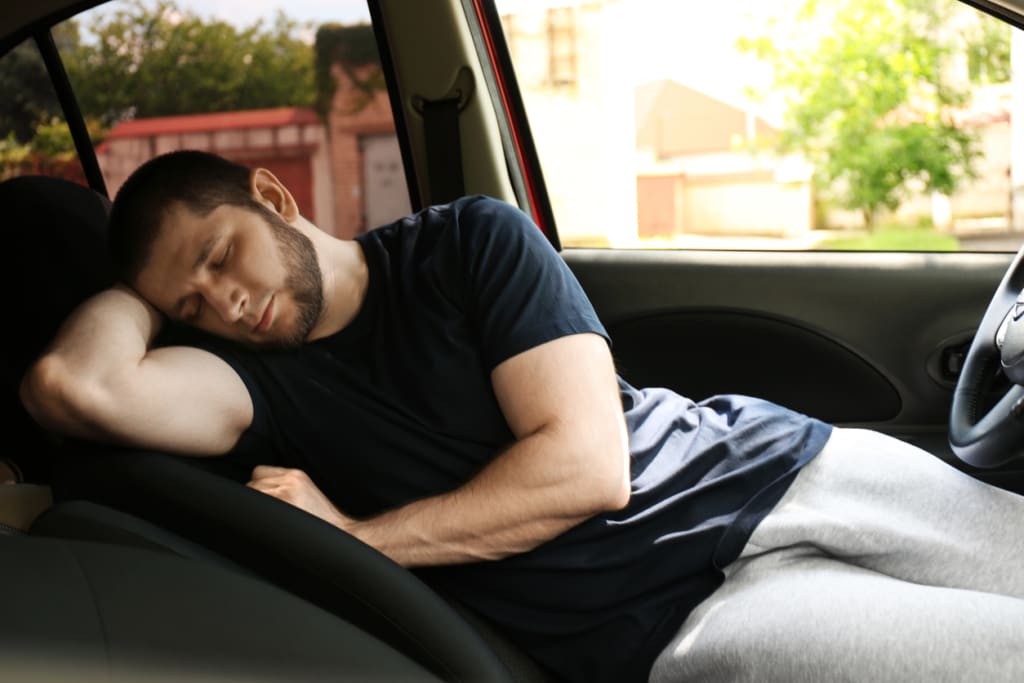Sleeping in your car, when circumstances dictate, can sometimes be the only available option. Whether you’re facing financial hardship, traveling on a budget, or simply find yourself overly fatigued during a road trip, understanding the laws and regulations surrounding car sleeping in Minnesota is crucial.
Is It Legal to Sleep in Your Car in Minnesota?
The legality of sleeping in your car in Minnesota is a complex issue with no simple “yes” or “no” answer. There are several factors to consider:
- Location: Where you park your car plays a significant role in determining the legality of sleeping in it.
- Local ordinances: Each city or municipality in Minnesota may have its own specific ordinances regarding sleeping in vehicles.
- Public vs. private property: Laws differ depending on whether you’re sleeping on public property (streets, rest stops) or private property (parking lots, campgrounds).
- DUI laws: Minnesota’s strict DUI laws strongly influence the issue of car sleeping.
DUI Concerns
Minnesota takes Driving Under the Influence (DUI) very seriously. The state’s laws go beyond prohibiting driving while intoxicated. You can be charged with DUI even if you are not actively driving your vehicle but are in “physical control” of it. This means if you are found sleeping in your car with the keys present, even if the engine is off, you could potentially face DUI charges if your blood alcohol content (BAC) is above the legal limit of 0.08%.
The rationale behind this law is to prevent people from driving under the influence, even if they have the intent to simply sleep it off. It’s essential to be aware of the broader implications of DUI law on car sleeping in Minnesota.
Breaking Down the Legalities
Here’s a closer look at the legality of car sleeping in Minnesota under different scenarios:
- Public Property
- Roadsides and Streets: Sleeping along roadsides or on city streets is generally frowned upon and may be prohibited by local ordinances. Many cities in Minnesota have ordinances that forbid overnight parking or camping in vehicles within city limits. Contact the local police department or consult the city’s website to check for specific regulations.
- Rest Stops: Minnesota rest stops offer a temporary haven for weary travelers. State laws allow sleeping in your vehicle at rest stops for up to four hours. However, overnight stays are strictly prohibited.
- Private Property
- Parking Lots: Sleeping in your car in a business parking lot requires the business owner’s permission. Walmart parking lots are sometimes seen as a safe option, but it’s best to check with the store management first.
- Campgrounds: Many campgrounds in Minnesota offer designated overnight parking spaces for car campers or those looking for budget-friendly alternatives.
Safer Alternatives to Consider
If you are looking for safer and more comfortable options for sleeping while on the road or need longer-term solutions, consider these alternatives:
- Public Campsites: Minnesota boasts a vast network of state parks and national forests with designated campgrounds, many of which have spaces for car camping or tent camping at affordable rates.
- Hostels: Hostels offer budget-friendly shared or private accommodations, often with common areas and kitchen facilities. You can find hostels in major cities like Minneapolis and Duluth.
- Couchsurfing: Couchsurfing platforms connect travelers with locals who offer a spare couch or room in their home for free. This can be a great way to experience local hospitality and save on accommodation costs.
- Shelters: If you’re facing housing instability, Minnesota has resources to help. Contact local shelters or homeless service organizations for temporary accommodation and support services.
Tips for Sleeping in Your Car in Minnesota
If you find yourself in a situation where sleeping in your car is unavoidable, follow these tips to minimize risk and ensure a safer experience:
- Choose your location wisely: Research areas with minimal restrictions. Look for well-lit, designated parking areas where overnight parking is generally allowed.
- Be discreet: Avoid drawing unnecessary attention to yourself. Park in inconspicuous areas, and keep noise and lights to a minimum.
- Practice safety: Keep your doors locked, valuables out of sight, and be aware of your surroundings.
- Don’t overstay your welcome: Limit your stay in any one location to avoid violating parking restrictions or arousing suspicion.
- Stay warm: Minnesota winters can be harsh. Ensure you have proper insulation, warm clothing, and blankets. Consider safe heating options if needed.
- Have a backup plan: It’s wise to have a backup plan for where you might go if asked to move on.
Additional Resources
- Minnesota Department of Transportation Rest Area Information: https://www.dot.state.mn.us/restareas/
- Minnesota State Parks and Campgrounds: https://www.dnr.state.mn.us/state_parks/
- National Forests in Minnesota: https://www.fs.usda.gov/activity/mnf/recreation/camping-cabins
Important Disclaimer This article provides general information on the legality of car sleeping in Minnesota. It should not be considered legal advice. Laws and regulations are subject to change, and it is always best to consult local ordinances and legal experts if you have specific questions or concerns.



